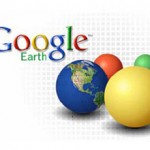 Redmond, Washington — The further consolidation of Arabic language potentialities in Internet and other technological field will enable millions access to the digital world. Executives from Microsoft Corp and Google Inc have both made a statement to Reuters that they see significant growth in the Arab world in terms of technology adoption during the next decade.
Redmond, Washington — The further consolidation of Arabic language potentialities in Internet and other technological field will enable millions access to the digital world. Executives from Microsoft Corp and Google Inc have both made a statement to Reuters that they see significant growth in the Arab world in terms of technology adoption during the next decade.
“(Microsoft CEO) Steve Ballmer and I a few years ago talked and believed Arabic would be an increasingly important language,” said Craig Mundie, Microsoft’s chief research and strategy officer. “And yet, because of the way the Internet was evolving, it was not a language that was getting a lot of use.”
As hardwares and software programs become more ubiquitous in less developed countries, the Arab world’s Internet application has grown faster than about any other region of the world and access costs have shrunk significantly during the last years, but the amount of content available in Arabic remains sparse. Currently, content in Arabic is less compromises less than 1% of information online, despite the fact that 5% of the global population speaks Arab, their content will grow and an embryonic e-economy should flourish, they said.
“There is a lot of Arabic content but it is not well structured,” said Google’s regional marketing manager Wael Ghonim. “We want more structured content. We want more of the professional, niche sites, more businesses.”
Although the Arab world Internet activity since 2000 has sprung up faster than anywhere else and access costs have decreased, content still punches below its weight and ad spending remains tiny.
The Arabic portal of online encyclopedia Wikipedia carries less words than its Catalan site, Ghonim said.
“One of our biggest assignments is to enable Arabic users to find the right tools to enrich Arabic content,” Ghonim added. “It would be great to see more e-commerce in the region, more publishers, more news sites. We are committed to help them.”
Both Google and Microsoft provide Arabic in their top ten languages in need of prioritized stance.
Microsoft’s Mundie was visiting the Cairo Microsoft Innovation Center, a regional center opened in 2006 that rolled out Windows extension “Maren,” which changes Arabic written in Roman characters into Arabic script. It is Microsoft’s second most popular service by page views after Internet Explorer 8.


